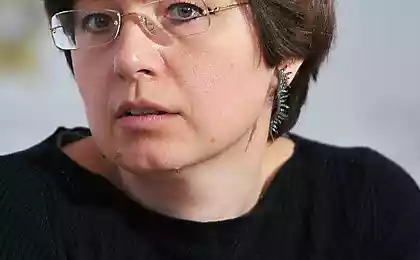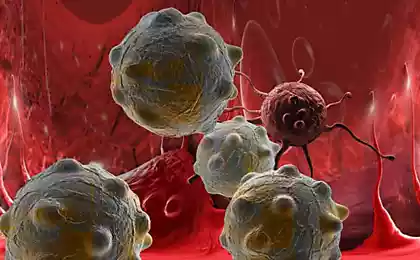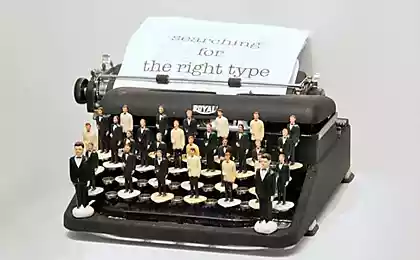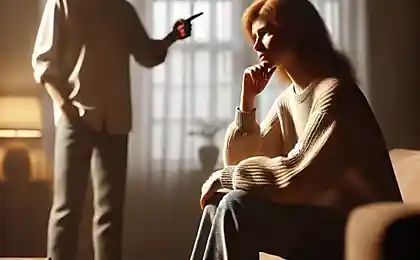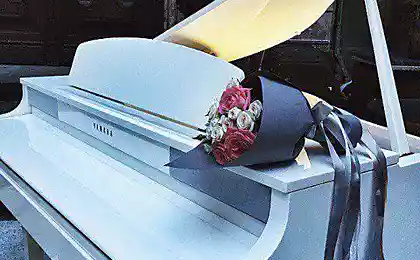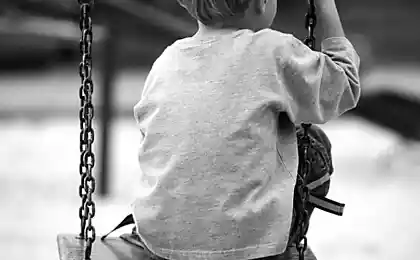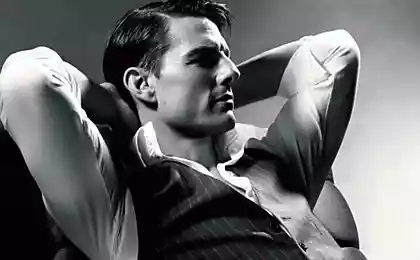269
How I got and survived my first heart attack. The story of a former athlete

© Polly Morgan - myocardial infarction.
This disease has long been called a disease of the 20th and 21st centuries. And it takes mostly the lives of men, despite their age.
So the question is, why men? Let’s put aside those circumstances, such as smoking and alcohol abuse, and in the remainder we will have such risk factors as physical and emotional overload. Do women have fewer of them?
Most likely, female natures are so arranged that stress immediately finds an outlet in tears and even hysteria, and thus they relieve most of the nervous breakdowns. A man who is ashamed to give out his emotions, drives them into himself. This often leads to tragic outcomes in situations that could easily be localized.
I also want to share my own experience to give men (and women too) practical advice on how to provide emergency assistance to themselves in this terrible situation. I have no medical education, I have read a lot.
A heart attack is usually associated with hypokinesia. My situation is quite different: there is no shortage of load, but rather, on the contrary, overload.
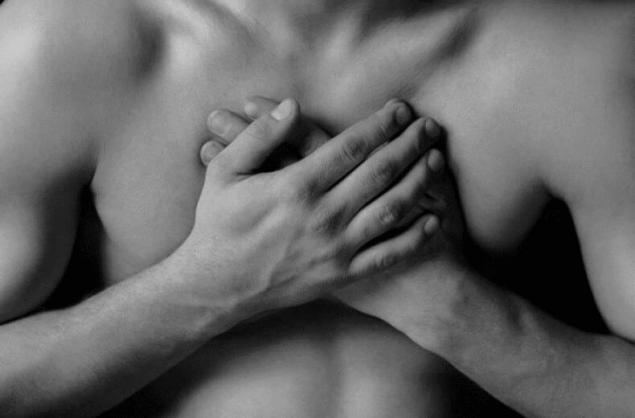
Like it happened to me.
My first heart attack hit me when I was 48. 6 days before these sad events, I received a prize for winning the competition of athletes over 40 years old. At the same time, I played volleyball perfectly, I ran 8 kilometers in the park three or four times a week in the morning. Calmly could pull up on the bar up to 12 times and 10 times squat and get up "pistol" on each of the legs. In short, I had quite a decent physical training.
2 weeks before this fateful day, I, without much stress, lifting a large enough bag of cabbage on my shoulders, for the first time felt in my chest some strange aching feeling, which probably cannot be called pain. But without giving it the slightest importance, and having decided that I just failed to turn and just "pinched" some nerve endings. A few days later, trying to catch up with the bus coming to the stop, I experienced the same unpleasant sensation. I didn’t say anything again, feeling completely healthy.
And then one day, after work, tired, late at night wanted to saw a metal corner for the gymnastic wall in the country. The evening was autumn, in the yard was October, it was overcast. The cold iron froze my hands and in order to warm up, I began to saw more intensely. Immediately in the chest began to grow a pinching feeling, and weakness spilled over the body. “I just didn’t need to get sour in front of all the neighbors!” I said to myself mentally, picking up heavy blanks and running to the second floor.
I fell right in the hallway, writhing with unbearable chest pain. The ambulance has arrived. Intensive measures, the doctors literally “pulled” me out of the world.
" Yes, you provoked a heart attack yourself, said the doctor who examined me, and you could do without it. Your heart is strong and not weak. How could you drive yourself like that? "
In the hospital, where I failed for more than 3 months (the heart attack repeated again), and during this time I became more educated, though not in the field of medicine, rather - I received a "heart attack" education.
All my life I will remember my savior Diana Andreevna Zenkovich. She saw her patients as allies in the fight against the disease. Going into the room, where there were three cores, she constantly gave us lectures, short and popular, and most importantly accessible to the perception.
She said something like this:
The heart is such a bag of muscles. This tireless mechanism performs a huge amount of work, distilling several tons of blood in 24 hours. The heart itself is not enriched with blood, which, like a pump, passes through it. The heart muscle is supplied with oxygen from the outside, through a large number of blood vessels that come to it from the outside. Can you imagine this mechanism?
And when it fails, due to the fact that some part of the vessels feeding it is affected by sclerosis and does not pass a sufficient amount of blood. A piece of heart muscle, now deprived of nutrition, dies.
Yes, but all the other neighboring muscles of the heart remained laborious! And then, with powerful contractions, they literally tear up the area that's dead. After all, in the old days, a heart attack was called a rupture of the heart. Man is already between life and death.
So needless to say, if at this moment he makes any physical effort (for example, run up the stairs), then there is practically no chance to save him!
Cardiologists will probably smile ironically after reading this primitive diagram. But it is this clear idea of the mechanism of heart attack that not only saved my life, but also allows me to live and work for more than ten years. (I was advised to apply for a disability and quit my job.)
A 42-year-old friend of mine recently died. I think he killed himself, just as if he had a loaded gun to his head! That's how it happened. On a trip to a competition in a small town, he suddenly felt a strange weakness all over his body, “Well?” Most likely, he told himself- Yes, so that I, an athlete who constantly plays football with my peers, veterans, allow myself to lie in bed because of nonsense malaise! Nonsense! I just need to get a good stretch. But the earthy color of his face and clearly unhealthy appearance drew the attention of others. With great difficulty he was barely persuaded to go to the doctor.
The doctor immediately found the formidable signs: “Young man, you have a pre-infarction condition.” He was immediately taken to a local hospital. Strictly forbidden to get out of bed, and to be safer, took his slippers. After half a day and a little rest, he felt very healthy. My friend disparaged the fake duck and went to the toilet barefoot. He was taken out of the toilet on a stretcher. And now not the room, but directly to the morgue.
I'm so clear about what happened to him, even though I wasn't there because I've experienced exactly the same thing myself. After I fell in the hallway, the ambulance did everything necessary. After several injections, which dilated my blood vessels and improved the blood supply to the heart muscle, I immediately regained consciousness. During this time, while I was carefully carried into the car, and then driven around the city, the pain completely subsided. I felt the usual strength in my muscles. I confidently declared to the doctor on duty that I, an athlete, do not have a heart attack and can never be. I apologized for the concern and was about to go home immediately.
The doctor looked at me with astonishment and noted with irony that at three o’clock in the morning I was unlikely to get home, barefoot, in a tracksuit. Let's wait until morning...
This morning I felt very healthy. And despite the fact that I was clearly told, "You have a heart attack," I doubted the competence of the doctors - because I felt great!
With the “duck” I also did not work out, and I also went to the toilet in my neighbor’s slippers. Fate felt sorry for me: I returned to the ward on my own, but after that I felt the same feeling in my chest that I experienced yesterday in the yard. Thank God it happened in the hospital and in the cardiac department. I pressed the red alarm button. The doctors rushed and pre-empted by urgent measures, and prevented a new heart attack that had already begun.
So because of these “arts” (until I got smarter), I fell on my back for three whole months, instead of one, and even after the hospital, I was treated at home for three months.
What to do if this happens
What conclusions can be drawn from all this?
The most important thing is to learn self-control, it means to analyze and understand your feelings correctly. And first of all, do not be mistaken, that like the heart is on the left and therefore in the case of his disease “tingles”. The left side sometimes tingles for other reasons.
We all need to know that the heart is “behind the sternum” (never heard of such a term before), in the middle of the chest and behind the bone from which the ribs grow, and quite high – almost in the place where the throat begins. If it hurts there...!!
Huge, alarm should cause even unfamiliar and unlike anything else pinching, burning behind the sternum, sometimes giving to the left hand, and at the same time spilling through the body weakness, the feeling that the chest is squeezed, difficult every breath.
Most likely, it comes to you a heart attack (don’t criticize me for the courage of judgment doctors). It's just coming in.
Whether it happens or not, begin to develop or linger in the stages of angina pectoris (also quite dangerous) depends on many reasons:
From your condition and the degree of wear and tear of the body.
The state of your nervous system.
From the proximity of qualified medical care.
From the availability of drugs.
Last but not least, your intelligence and literacy and your behavior at this critical moment.
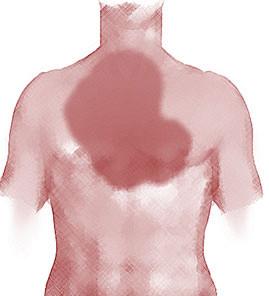
Pain zones in myocardial infarction: dark bard = typical area, light maroon = other possible areas
God save you from trying, with the help of “your willpower” in overcoming the weakness spreading through the body, lead weight in the limbs, pinching behind the sternum! Neither being late for work, nor a fire, should make you run, or fly up stairs, or carry a bag to your place! Nothing! It’s about your life and it can end in half an hour, no matter what kind of athlete you are. !
It is not too late to help a person (or to help himself) if a sudden attack occurs. The first thing you need to do is to immediately reduce the load on the heart! To do this, you need to stop any movement, sit or lie down where you have to, and completely relax.
It is necessary to try to warm quickly cooling hands and feet. Access to fresh air is also necessary. And of course, take a strong vasodilator medicine: nitroglycerin, sustak or nitrong. Where can I get him? If you have already had similar mild attacks, and doctors confirmed that your heart is not healthy - a tiny tube with nitroglycerin tablets, it is dispensed in a pharmacy without a prescription, you need to constantly carry with you. If the attack began unexpectedly, the first time - ask for help from passers-by. Today, “emergency cardiac care” is worn by many; they will help you out. After one pill taken, a rapid rush of blood will be caused and the risk of heart rupture will sharply decrease.
Next. You were taken to the hospital and caring doctors came out. Another “delicate” question arises before you: how is it better to recover in order to return to an active life? This question is called “delicate” only because medicine does not give any recommendations on this matter. See for yourself: let’s read articles on the restoration of health for those who have had a heart attack. In addition to the advice “to be in the air more often and walk more”, you will not read anything. Then there is a significant: “for these people the opportunity to engage in physical education exists, only they should consult with their doctors.”
We will call you (if we have not done so before). And let us make sure that our physician, a good friend, and certainly your benefactor, is following the wisest advice of the father of medicine, Hippocrates: Do no harm! Yes, he will tell you that physical education and hardening are great. But... you’d be wiser to wait, take a little precaution and do it sometime in the future!
I don't want to cast a shadow on the doctors (whom I owe to live and work) Are they, as it were, cautious just because they were taught to treat, and not to apply physical education? Nothing like that! I am convinced that doctors understand the healing power of physical exercises and know the methods of their use. But not in order to recommend a system of physical exercises to the cores and even with increasing loads, and thus take responsibility for the patient's life. The doctor should be able to constantly monitor the slightest changes in the patient's body. And where to find this opportunity, the doctor of the clinic, receiving 40-60 patients a day?! This is what lies in such a seemingly inexplicable phenomenon: all popular (primarily sports) literature, print publications, the Internet, radio and television call for physical education, both small and old, and healthy and sick. At the same time, when contacting doctors for advice, you are likely to meet with the desire to protect you from stress. Don't hurt me.
Advice to treat diseases (including cardiovascular) with active movements you can get only from an enthusiastic doctor, like academician N. Amosov.
The ideal option is your personal doctor, who has been observing you for many years and who records all changes in your body, while giving scientifically based recommendations. But that dream seems impossible.
If so, then your self-control is very important. Again, I would like to refer to a personal example, talking about post-infarction recovery by gradually increasing the load - provided, of course, that I do not impose and do not recommend my method to anyone.
I will not tell you in detail, I will only say that when I found myself in such a difficult situation, I listened and acted on the instructions of the doctors, but with a slight advance. I listened very carefully to my well-being, and it wasn't until I was allowed to walk around the 10 steps room that I walked 15, 19, 22. But I immediately stopped only at hints of unpleasant sensations, which I already understood very well. The same was done when choosing a set of exercises for charging: over time complicating them, increasing the number of repetitions.
So I came to the fact that today, at the age of 60-plus, I can again pull up on the bar; push back from the floor ten times in stead while lying down; ten times to sit down. I can swim in the pool for a long time and go (no running!) on skis. I can carry (for short distances, with rest) 20-30 kilograms, instead of the 3-5 kilograms recommended by doctors. I can also work (not physically) 10-12 hours in a row, work slowly in the summer cottage - dig, mow, dust.
I repeat again and again that it is all individual! What is good and useful to one may be harmful to another. It is very important for each person, through careful tests, to determine the limit beyond which dangerous overstrain can begin. And carefully, by touch, with the help of training, and of course, consulting a doctor, telling him in detail about your feelings, try to push this limit at least a little and expand your capabilities. published
P.S. And remember, just changing our consumption – together we change the world!
Source: pokolenie-x.com/? p=4451
